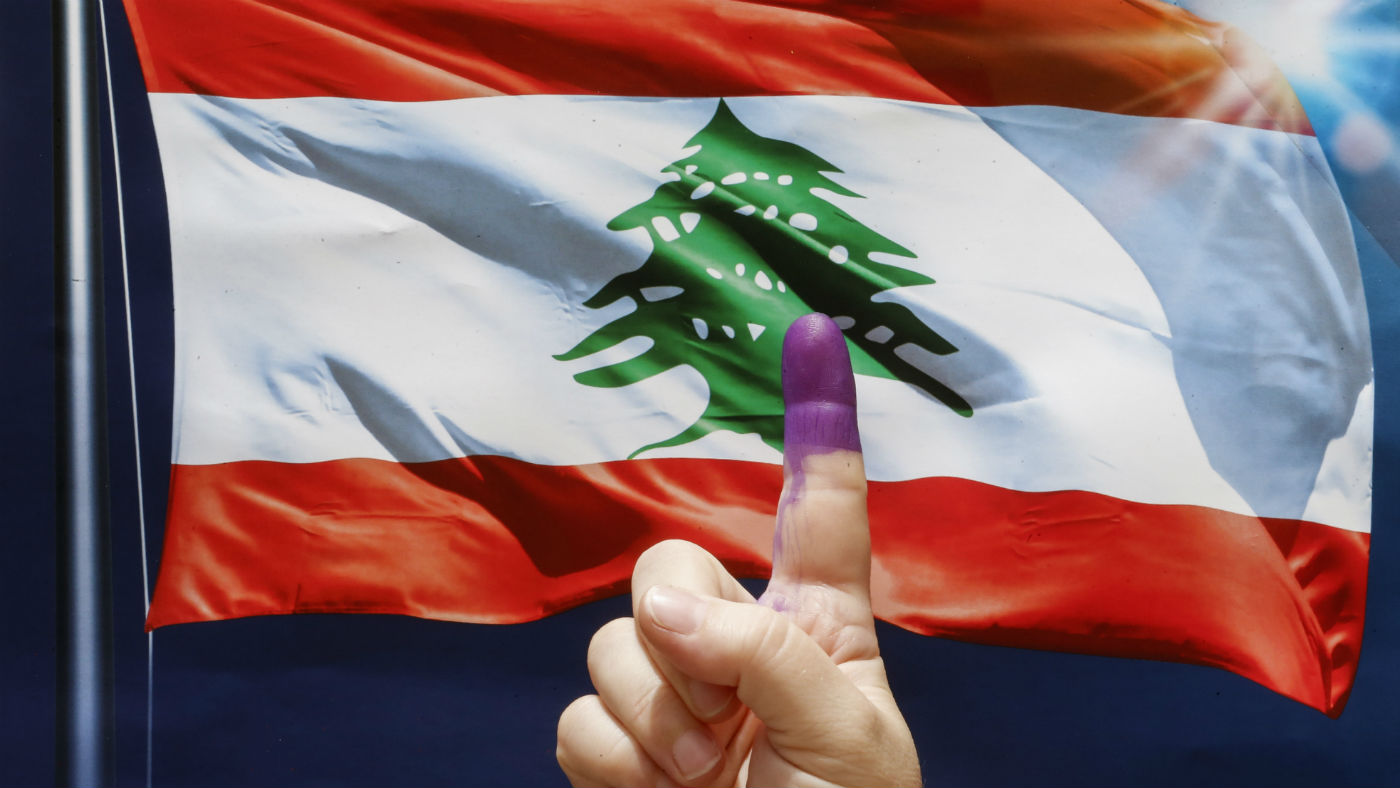Hezbollah and allies win majority in Lebanon election
Gains for Shia group further boosts Iran’s influence in the region

A free daily email with the biggest news stories of the day – and the best features from TheWeek.com
You are now subscribed
Your newsletter sign-up was successful
Unofficial results from Lebanon’s first parliamentary election in almost a decade show that Hezbollah and its political allies have won just over half of the seats.
Big gains in Sunday’s vote will boost “an Iranian-backed movement fiercely opposed to Israel and underlining Tehran’s growing regional clout”, says Reuters. Hezbollah has been branded a terrorist organisation by the US.
The interior ministry reported turnout was less than 50% in Lebanon’s first parliamentary election since 2009, despite an estimated 800,000 voters under the age of 30 who were expected to cast ballots for the first time.
The Week
Escape your echo chamber. Get the facts behind the news, plus analysis from multiple perspectives.

Sign up for The Week's Free Newsletters
From our morning news briefing to a weekly Good News Newsletter, get the best of The Week delivered directly to your inbox.
From our morning news briefing to a weekly Good News Newsletter, get the best of The Week delivered directly to your inbox.
Trying to hold back Hezbollah’s growing influence is incumbent Prime Minister Saad Hariri, who leads the Mustaqbal, or Future, bloc. Mustaqbal is backed by Saudi Arabia, Iran's Sunni rival, CNN reports, and also favoured by Western governments.
The unofficial tally indicated sharp losses for Hariri, but he is still set to emerge as the Sunni Muslim leader with the biggest bloc in the 128-seat house, “making him the frontrunner to form the next government”, according to Reuters.
Under Lebanon’s complicated sectarian power-sharing constitution, the prime minister must be a Sunni, who presides over a government consisting of all main parties.
Lebanon’s ballooning state debt levels, among the highest in the world, and an influx of over a million refugees from neighbouring Syria are among the most pressing issues facing the new government.
A free daily email with the biggest news stories of the day – and the best features from TheWeek.com
Yet it is Iran’s growing influence in the country, primarily manifested through its support of Hezbollah, that is seen by many abroad as the biggest threat to long-term stability in the region.
However, while they made gains, Hezbollah and its allies fell short of the two-thirds majority needed to make changes to the country’s constitution.
-
 Why is the Trump administration talking about ‘Western civilization’?
Why is the Trump administration talking about ‘Western civilization’?Talking Points Rubio says Europe, US bonded by religion and ancestry
-
 Quentin Deranque: a student’s death energizes the French far right
Quentin Deranque: a student’s death energizes the French far rightIN THE SPOTLIGHT Reactions to the violent killing of an ultraconservative activist offer a glimpse at the culture wars roiling France ahead of next year’s elections
-
 Secured vs. unsecured loans: how do they differ and which is better?
Secured vs. unsecured loans: how do they differ and which is better?the explainer They are distinguished by the level of risk and the inclusion of collateral
-
 Will increasing tensions with Iran boil over into war?
Will increasing tensions with Iran boil over into war?Today’s Big Question President Donald Trump has recently been threatening the country
-
 Epstein files topple law CEO, roil UK government
Epstein files topple law CEO, roil UK governmentSpeed Read Peter Mandelson, Britain’s former ambassador to the US, is caught up in the scandal
-
 Iran and US prepare to meet after skirmishes
Iran and US prepare to meet after skirmishesSpeed Read The incident comes amid heightened tensions in the Middle East
-
 Which way will Trump go on Iran?
Which way will Trump go on Iran?Today’s Big Question Diplomatic talks set to be held in Turkey on Friday, but failure to reach an agreement could have ‘terrible’ global ramifications
-
 Syria’s Kurds: abandoned by their US ally
Syria’s Kurds: abandoned by their US allyTalking Point Ahmed al-Sharaa’s lightning offensive against Syrian Kurdistan belies his promise to respect the country’s ethnic minorities
-
 Israel retrieves final hostage’s body from Gaza
Israel retrieves final hostage’s body from GazaSpeed Read The 24-year-old police officer was killed during the initial Hamas attack
-
 China’s Xi targets top general in growing purge
China’s Xi targets top general in growing purgeSpeed Read Zhang Youxia is being investigated over ‘grave violations’ of the law
-
 Syria’s Islamic State problem
Syria’s Islamic State problemIn The Spotlight Fragile security in prison camps leads to escape of IS fighters